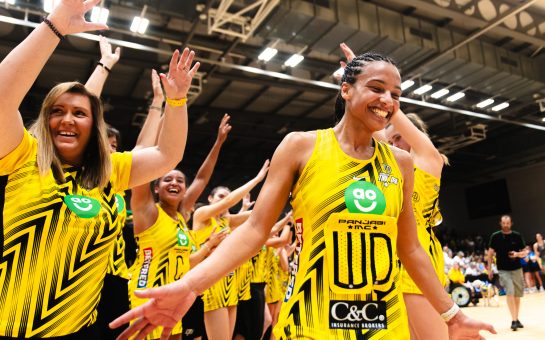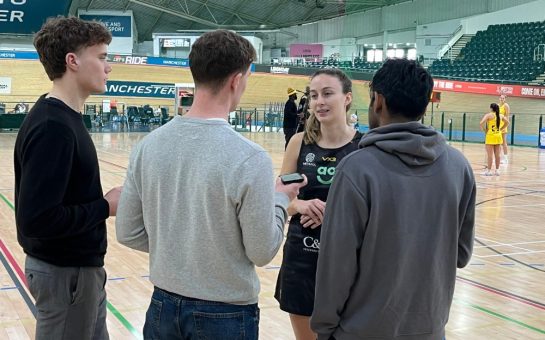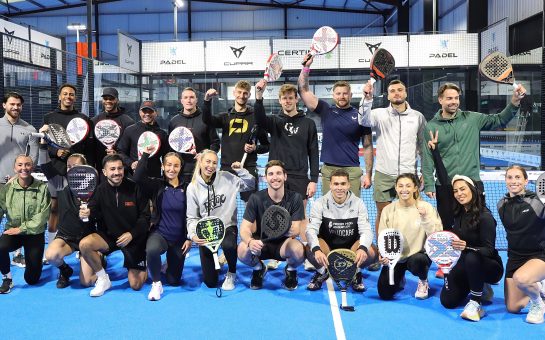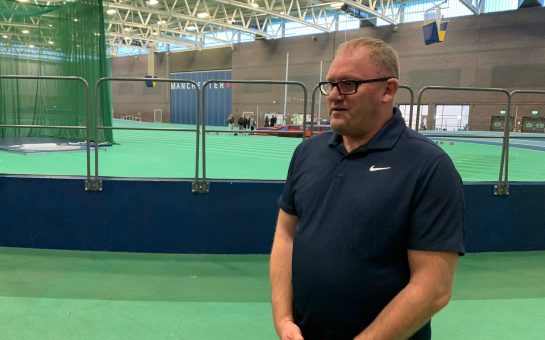Joanna Coates may only have been in charge of UK Athletics since February, but already she looks determined to overhaul the entire ethos of the governing body in a big way.
Confidence in the organisation has been consistently eroded by a succession of scandals, misjudgements, and resignations, prompting Coates to dub her new position as UK Athletics Chief Executive as “the toughest role in British sport.”
Yet the former head of England Netball, who left the organisation in August last year, is in no mood to shirk her responsibilities as she attempts to turn the sport around.
In the first major decision of her premiership, Coates has confirmed that UKA are to hand over to UK Anti-Doping an internal report – produced in 2015 – which concerned the relationship between Mo Farah and his now disgraced former coach Alberto Salazar.
UKAD had previously released a statement “remind[ing] UKA that they are bound by the National Anti-Doping Policy.”
This is a positive start, and potentially the first step towards rebuilding a governing body brought to its knees by gross mismanagement over recent years – but there are plenty more hurdles for the organisation to overcome.
The first of these is the independent review launched by UK Sport which will scrutinise the “strategy, leadership, governance, operation, culture and connectivity of UK Athletics”.
With UKA having been allocated £26.9m in funding for the Tokyo 2020 Olympic cycle, the review may result in funding cuts should the governing body fall foul of the standards set by UK Sport.
Coates, however, has welcomed the report, which is headed by the former Secretary for the Department for Culture, Media and Sport, Dame Sue Street.
“It gives us a great platform to make some of this change because it gives you extra gravitas,” Coates said. “It’s a great thing for a CEO to have […] we [now] have an opportunity to write a strategy and a plan based on very clear behaviours.”
The second challenge is the financial predicament of UKA. The organisation’s cash reserves sit at a ten-year low of £2.8m, with contributory factors including their 500k tax bill from HMRC after failing to pay tax on its Nike kit deal, as well as the hosting of the Athletics World Cup in 2018, which is believed to have cost UKA close to £2m.
The third obstacle to negotiate is the lack of confidence held by athletes and coaches in UKA. In the run-up to the Doha World Championships, selectors not only had the discretion to reject World Athletics’ invitations to athletes who had obtained the IAAF standard, but could also send athletes who had fallen short of the qualifying mark.
The policy appeared to be guided by a narrow focus of winning medals rather than developing athletes and exposing them to world-class competitors.
Scottish Athletics too have voiced their concerns about the governance of UKA, with chairman Ian Beattie and chief executive Mark Munro suggesting in a letter to UKA that the relentless pursuit of medals has come at the cost of ethics and sensibility.
One section of the letter read that there is “a lack of trust in the decision-making processes of UKA by the whole athletics community, particularly around athlete high-performance funding.”
From a broader perspective, the centralisation of the sport in Loughborough has courted disaffection.
Coaches, the vast majority of whom are unpaid volunteers, are often powerless as the athletes they have guided from a young age switch to National Performance Coaches at the high-performance centre, denying them the opportunity to coach an athlete to their fullest potential.
There is little Coates can do about this in the short-term of course, but such a predicament epitomises the simmering discontent evident in the wider athletics community throughout the UK.
The signs from Coates, however, suggest she wants to foster a fresh outlook on athletics in Britain at a time when it is needed most.
“I think the organisation, going forward, needs much stronger leadership,” she said. “I also think across the entire executive, and each of the directorates, the sport needs to work closer. The CEO needs to have a greater understanding of what is happening in the business.”
What is clear from Coates’s early statements, though, is that she wants to build a strong relationship with athletics participants at all levels – and evolving the ethos of the sport is what will rebuild trust and help UKA recover from a traumatic series of setbacks.
“Performance cannot dictate a business,” she said. “That is how I feel. Major decisions should be made at an executive level and people should understand what is happening in their business.
“We will be reviewing the entire organisation and seeing if people are fit for purpose to drive this business forward.
“Under my tenure, I do not want medals at all costs.”
Such an outlook in years gone by may have been dismissed as defeatist or unambitious, but there is a sense that it is the right time for a new perspective.
Coates will need time and support to help UKA recover its fortunes; with these, she surely stands a better chance than many of her predecessors.



